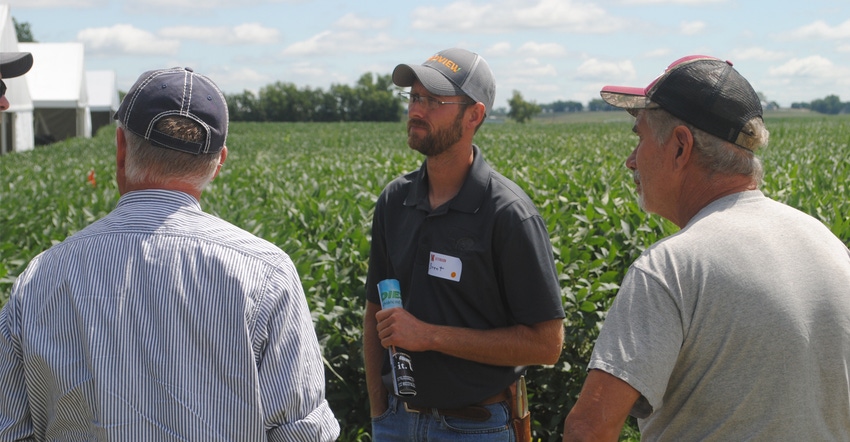
Brent and Brenda Svoboda farm corn and soybeans near Pender, Neb. This young farm couple represented Nebraska in the American Soybean Association Corteva Agriscience Young Leader Program in 2015, before they had young children.
Today, Brent and Brenda have a young family, and Brent serves as a district director for the Nebraska Soybean Association (NSA). The experiences the young farm couple had in the ASA Young Leader program prompted Brent to want to do more and to serve his fellow soybean producers across the state.
"Both Brenda and I were very involved in organizations when we were in high school," Brent Svoboda says. "We were both involved in 4-H. I was in FFA, and Brenda was a state officer in FCCLA [Family, Career and Community Leaders of America]."
This longing for leadership development that began in high school has continued as the Svobodas raise their family.
"The Young Leader program that the Svobodas took part in provides training for actively farming couples or individuals who are passionate about the possibilities of the future of agriculture," says Lori Luebbe, executive director of NSA. "The program is a two-phase training in which they interact with other young leaders to gain tools to better tell their story to influence, inspire and connect."
"In a tough farm economy, it seems like membership in commodity organizations and farm groups goes down," Brent says. Challenging times are exactly when membership in these organizations is even more crucial, he says.
"You actually are gaining by being involved," he adds. "It is kind of a support group, where everyone is dealing with the same challenges as you. Belonging to these organizations helps you to feel like you are not the only one in this situation."
Brent says that membership in farm organizations has helped their farming operation. "It changes the way we look at things and has opened our eyes about issues that might not directly concern me, but might impact others," he explains. "It is neat to see how policy happens and to have a say in that. You can have an impact, not only on the local level, but also on the state and national level."
From a practical standpoint, membership in many commodity groups provides numerous benefits that almost always more than pay for the dues, he adds.
"As a member, you are supporting the organizations that are working on your behalf, tackling everyday challenges the industry faces," Luebbe says, "from the farm bill to trade agreements to global expansion." She notes that agriculture commodity organizations work all the time to protect the interests of growers and producers.
"They make certain the end users and market opportunities are stable and continue to expand," Luebbe says. "The young producers can connect with policymakers about how current and future policy will play a critical role in their future. Whether you are a young producer or already involved, you can make a difference."
Cale Buhr of Trumbull, Neb., has been selected as the ASA Young Leader from Nebraska for 2020-21, Luebbe says. Learn more about the Young Leader program or about getting involved in NSA by contacting Luebbe at [email protected].
About the Author(s)
You May Also Like






